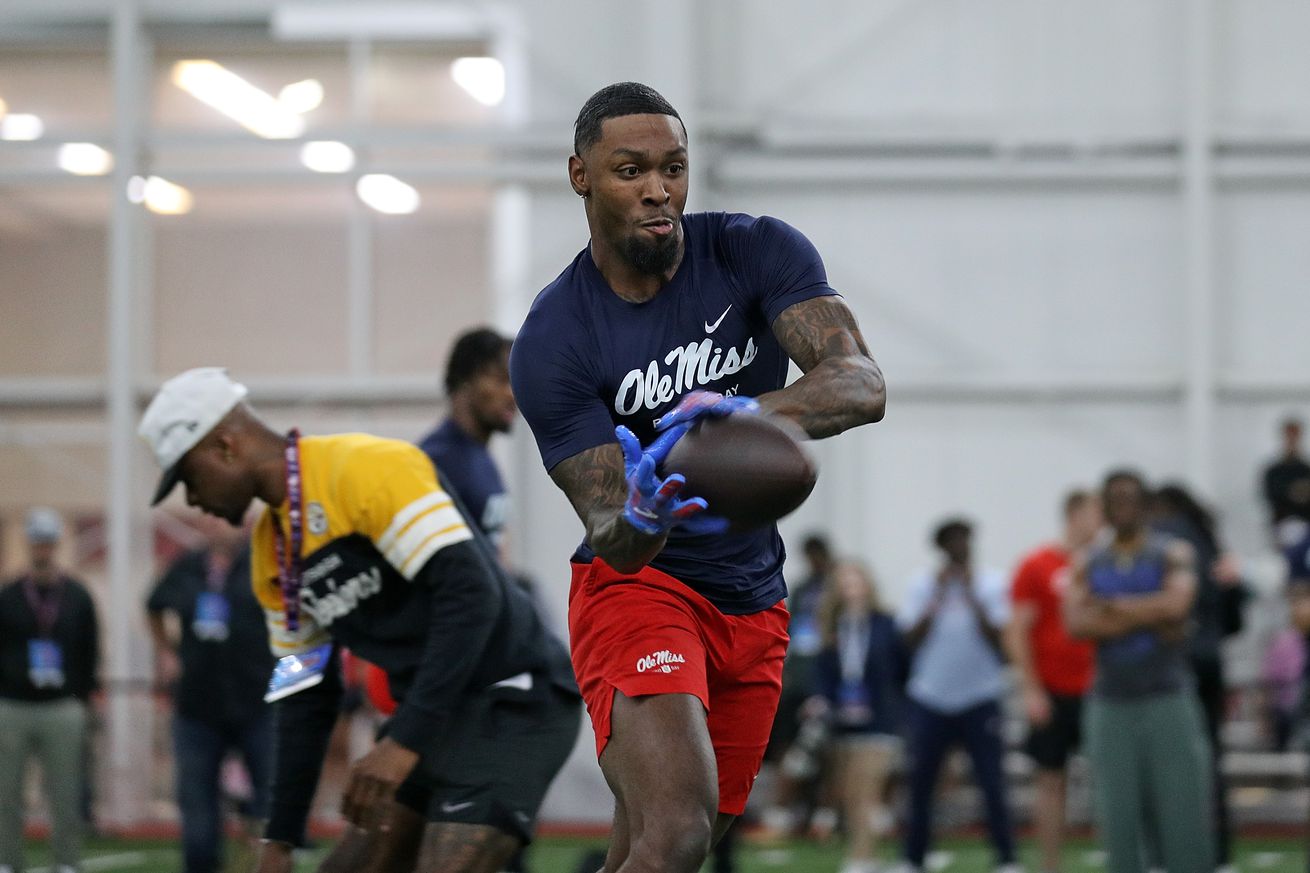
The reason Green Bay passed on Ole Miss cornerback Trey Amos in the draft is becoming clearer
The Green Bay Packers aren’t afraid to bring in players with medical red flags for an extra check in the pre-draft process. Just last draft class alone, the Packers got one last look at receiver Tory Horton (torn ACL), tackle Josh Simmons (torn patellar tendon), defensive end Elijah Roberts (broken hand), cornerback Shavon Revel Jr. (torn ACL) and cornerback Jason Marshall Jr. (shoulder injury) with their 30 allotted pre-draft visits.
According to ESPN, another Packers visitor — Ole Miss cornerback Trey Amos — was apparently a player with medical concerns. This was not reported prior to the draft and was only first rumored last week. Amos was a two-time transfer who went from a high school quarterback to a starting cornerback at Louisiana before transferring to Alabama and then finally to Ole Miss. Amos surprised many when he ran a 4.4-second 40-yard dash this spring, as he was perceived to be a cornerback with elite ball skills but lacked elite deep speed on film.
Per ESPN’s Jeremy Fowler, Amos, who was projected to be a borderline first-round pick, is dealing with a back issue that “probably caused him to slide a bit,” according to an anonymous AFC executive who spoke to Fowler. That makes sense, considering how the 2025 draft played out.
As we wrote about after the draft, the healthy cornerbacks in this class went much higher than expected, with the final four cornerbacks picked on Day 2 of the draft being selected a combined 273 draft slots earlier than consensus draft board projections. The one, previously perceived to be healthy, non-reach on Day 2 was Amos, who stayed available until the Washington Commanders finally took him with the 61st overall pick.
So that solves that mystery. While some Packers fans were probably ripping their hair out, wondering why Green Bay passed on Amos with the 54th pick that the team ended up using on North Carolina State tackle Anthony Belton, it’s likely that general manager Brian Gutekunst did so because of medical reasons that were not previously known to the public.